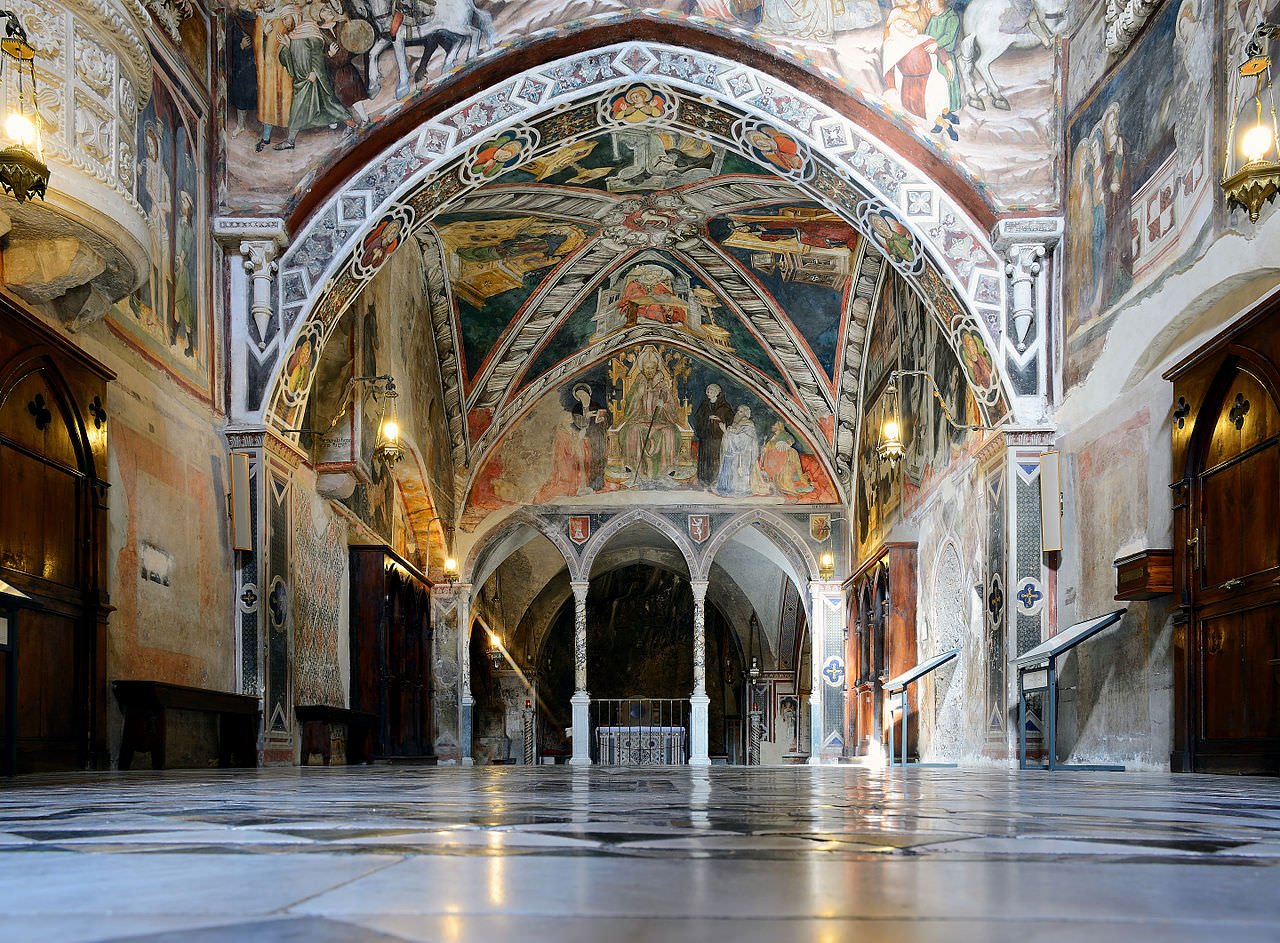There were many mystics in the Middle Ages. Bernard, mystic and activist, denounced Abelard, thinker and rationalist teacher. St. Francis also distrusted formal intellectual activity. For him, Christ was no philosopher; Christ’s way was the way of submission, of subduing the mind as well as the flesh. The quality of Francis’s piety comes out in this fragment of the Canticle of the Brother Sun:
Praised be thou, my Lord, with all thy creatures, especially milord Brother Sun that dawns and lightens us.
Be praised, my Lord, for Sister Moon and the stars that thou hast made bright and precious and beautiful.
Be praised, my Lord, for Brother Wind, and for the air and cloud and the clear sky and for all weathers through which thou givest sustenance to thy creatures.
Be praised, my Lord, for Sister Water, that is very useful and humble and precious and chaste.
Be praised, my Lord, for Brother Fire, through whom thou dost illumine the night, and comely is he and glad and bold and strong.
Be praised my Lord, for Sister, Our Mother Earth, that doth cherish and keep us and produces various fruits with coloured flowers and the grass.
Bonaventura (John of Fidanza, 1221-1274) preached to his students in Paris that the human mind could understand only things of the physical world. Only by divine illumination could humans hope to gain cognition of the divine or supernatural. Prayer, not study; love and longing for God, not reason—this was the answer of Bonaventura, as it always is for mystics.

